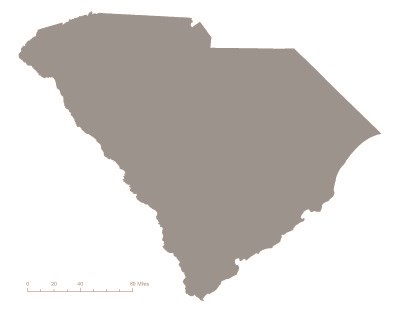Last updated: August 27, 2019
Article
South Carolina and the 19th Amendment

Women first organized and collectively fought for suffrage at the national level in July of 1848. Suffragists such as Elizabeth Cady Stanton and Lucretia Mott convened a meeting of over 300 people in Seneca Falls, New York. In the following decades, women marched, protested, lobbied, and even went to jail. By the 1870s, women pressured Congress to vote on an amendment that would recognize their suffrage rights. This amendment was sometimes known as the Susan B. Anthony amendment and became the 19th Amendment.
The amendment reads:
"The right of citizens of the United States to vote shall not be denied or abridged by the United State or by any state on account of sex."
After decades of arguments for and against women's suffrage, Congress finally passed the 19th Amendment in June 1919. After Congress approved the 19th Amendment, at least 36 states needed to vote in favor of it for it to become law. This process is called ratification.
On January 28, 1920, South Carolina voted to reject the 19th Amendment. But by August of 1920, 36 states ratified the Amendment, ensuring that in every state – even in South Carolina--the right to vote could not be denied based on sex.
On July 1, 1969, South Carolina showed its support for women’s suffrage by officially ratifying the 19th Amendment.

South Carolina Places of Women’s Suffrage: The Pickens-Salley House
In the late 1920s, noted suffragist and businesswoman Eulalie Chafee Salley purchased a historic house and had it moved to Aiken County. Salley preserved the home and was one of the first women actively involved in historic preservation in South Carolina. She was also well known for her dedication to women’s rights. Salley joined the South Carolina Equal Suffrage League of Women Voters and founded a local group called the Aiken County Equal Suffrage League. She also led the unsuccessful campaign to persuade South Carolina to ratify the 19th Amendment. Salley was so dedicated to the cause that she took a ride on one of the state’s first airplanes and scattered suffrage pamphlets from the air.

The Pickens-Salley House is an important place in the story of ratification. It is listed on the National Register of Historic Places.
